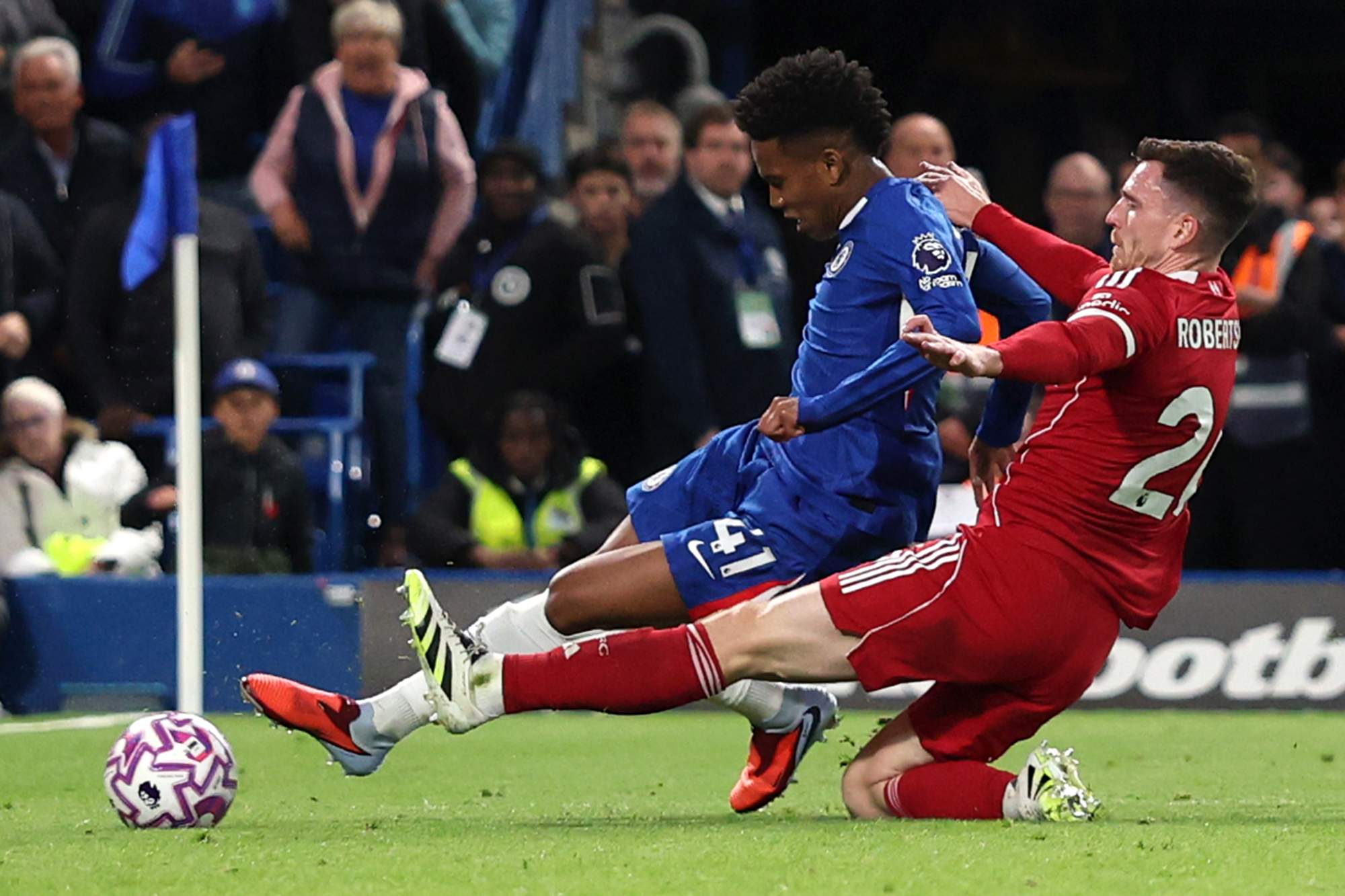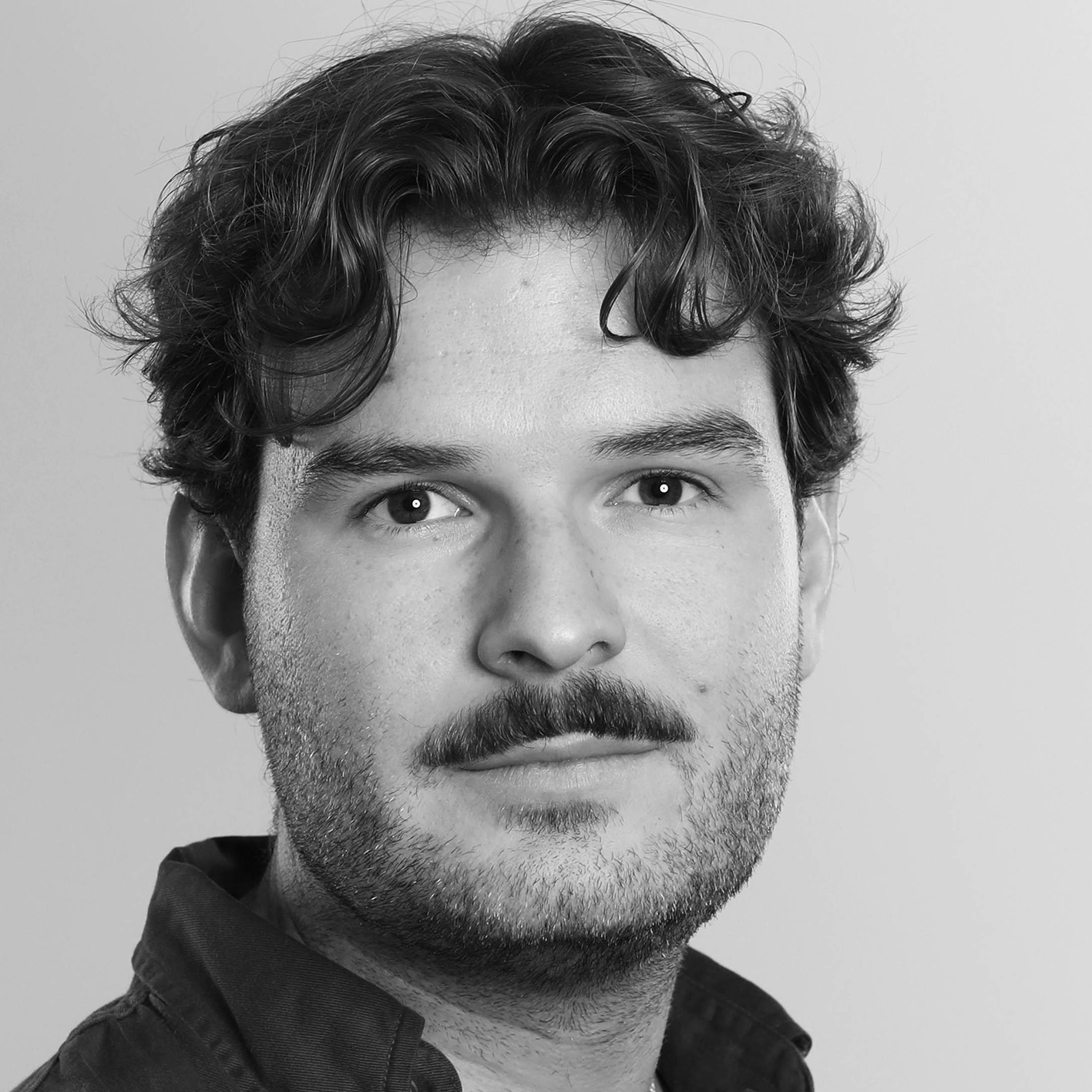A wave of joy and sound and fury washed over west London, a euphoric release of tensions past and present into the night sky. For a fleeting moment, all was right in Chelsea’s chaotic world, even having spent the final 25 minutes with a backline of two right-backs and two left-backs, with Liverpool edging ever closer to a victory which felt inevitable until it was impossible. However gradual and costly, a new Chelsea is being constructed brick by brick, win by win.
On days like this Stamford Bridge is an edgy, incoherent place, fans unsure exactly what they are about to watch, how much trust and emotion to invest and risk. In 16 league games since Enzo Maresca’s appointment against teams who finished in last season’s top eight, Chelsea have won 20 of a possible 48 points, only one of which came away. Recent discipline issues have done nothing to deepen confidence in a brilliant yet volatile swarm of potential, with more yellow and red cards since Maresca was hired than any other Premier League side.
Chelsea are still racked by something of an identity crisis, a soft middle, a club once defined by winning yet increasingly confined to mediocrity, foundations stripped by a seemingly endless overhaul. If anything, transition and excess are now the identity, incredibly difficult to grasp hold of or love. Football clubs are always fluid things and yet too much change can be as dangerous as too little. Everything at Chelsea has changed in the past three years aside from the stadium and the fans, who feel more disenfranchised and disconnected than ever before, protesting for “BlueCo Out” as recently as February.
Jose Mourinho’s return with Benfica on Tuesday as a grizzled meme behemoth forcibly surfaced some of these lingering concerns, still a more popular figure at the club than anyone they currently employ, a decade after last leaving and having since managed two of their closest rivals.
Gary Cahill and Florent Malouda were presented at half-time against Liverpool, now odd visions from another life, an alternate reality. The club struggle to make sense of their relationship with the Roman Abramovich era, especially after the 74 FA charges for alleged rule breaches between 2009 and 2022, triggered after the new ownership self-reported offences, with a Premier League investigation ongoing. But what those years did teach these fans is that winning atones for all manner of sins, football’s magic balm.
And yet even the silverware they have lifted of late does not seem sufficiently healing, one trophy it would have been humiliating not to win and another so unexpected and freighted with caveats it almost felt like an anomaly, a reflection more of Paris Saint-Germain’s exhaustion and arrogance than of any genuine progress for Maresca, in a competition with no established meaning.
So we are left with an injury crisis in the first week of October – with eight players unavailable for this match – which can only be the product of poor or inappropriate pre-season preparation, “probably some consequences from the Club World Cup”, as Maresca has said. Cole Palmer hid under a gaudy green hood, nursing a recurring groin issue, yet another sign the weight of simply being Cole Palmer in this Chelsea side is a physical and mental strain.
Maresca prowled the Stamford Bridge touchline in a matching pistachio tracksuit set, looking like he should be menacing pensioners outside a provincial shopping centre. He is the reluctant face of the new Chelsea, an aloof and haughty figure incapable of forging the cults of personality his predecessors thrived on. Fans have never particularly warmed to him or his football, not helped by a lack of obviously magnetic characters on pitch.
Former Wigan Warriors centre Willie Isa, the player support and development officer, is the third Kiwi alone hired by BlueCo to improve the culture inside the club, after “no dickheads” visionary Gilbert Enoka and “performance guru” Owen Eastwood. There does at least appear a conscious effort from executives to reconstruct some of what has been lost.
The new regime have attempted to instil their own matchday traditions, from the pre-match DJ to the introduction of goal celebration music in the defeat by Brighton. Choosing Chelsea Dagger, a kitsch anthem by a Glaswegian band with no relation to Chelsea the place or football club, seemed significantly more popular when preceded by an added-time winner from Estêvão Willian over the reigning champions.
Newsletters
Choose the newsletters you want to receive
View more
For information about how The Observer protects your data, read our Privacy Policy
Yet there remains the sense that only winning everything, all the time, would really justify what it has taken to get here, the vast human and financial cost. The Bayern defeat exposed that they are not serious Champions League contenders. If they were to win the Premier League in 2027, five years after this all began, would it have been worth it?
At that point you suspect very few people involved would still care. For as was increasingly obvious yesterday, what would heal Chelsea is what has always healed Chelsea in the 21st century: success, a team who defined themselves for nearly 20 years on winning through the chaos.
And so as fireworks burst from the Matthew Harding Stand on Anthony Taylor’s final whistle, all felt right in Chelsea’s increasingly transitory world. For all the simmering flaws and lingering issues, this is how you rebuild a club, rebuild a culture, rebuild a future: brick by brick, win by win.
Photograph by Michael Steele/Getty Images



